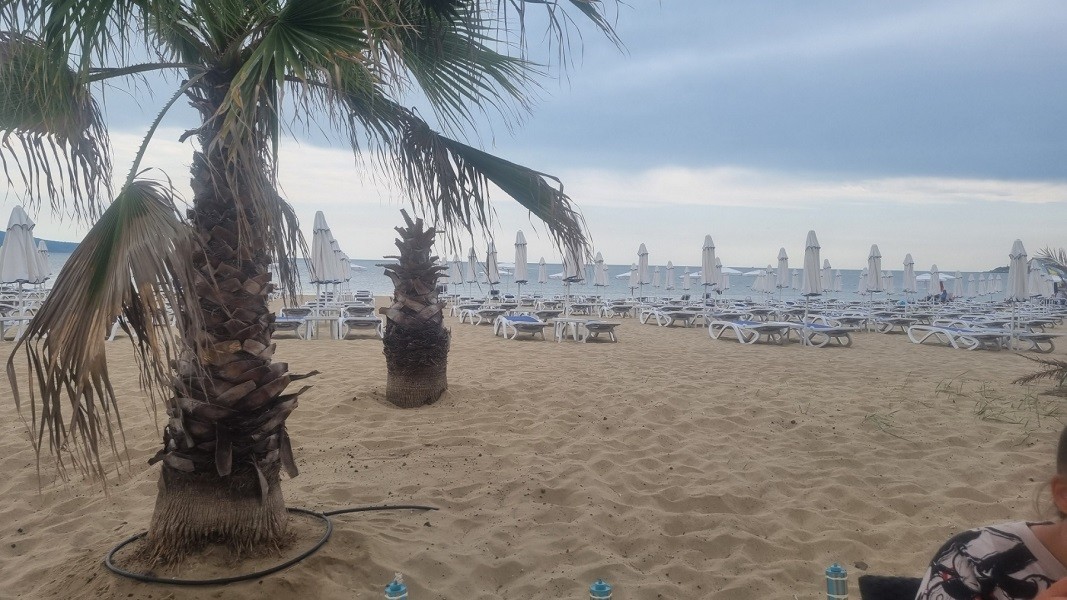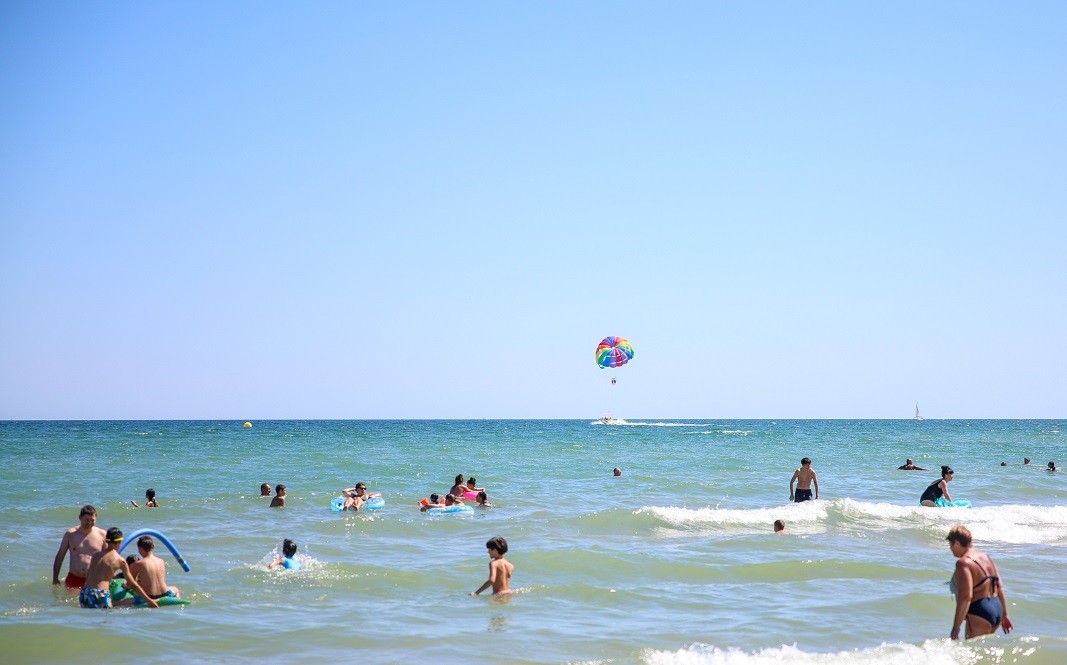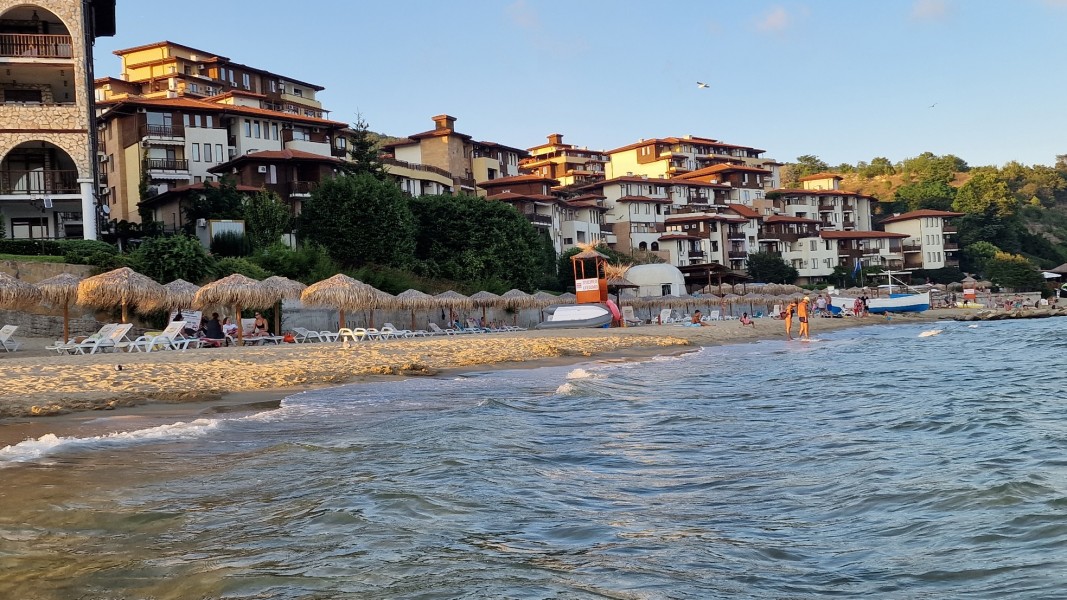Shorter than expected and worse than predicted – that is how the summer tourist season is described by hotel and restaurant operators in Bulgaria’s biggest seaside resort Sunny Beach. Prices there, and at other Black Sea resorts are now lower, yet quite a few catering establishments have closed doors with the explanation there are no customers. BNR’s correspondent in Burgas Daniela Kostadinova talked to people from the tourism industry:
“The first two months – May and June – it rained all the time, there were no people. There were hotels that didn’t open at all, others had an occupancy rate of no more than 10%. The season is bad. We’ve managed to pull through, though things are not what we expected. 1,200,000 tourists were supposed to come from Germany, but because of that “dirty water” provocation they didn’t come,” a man from the resort says. “Maybe that benefits our rivals in Greece and in Turkey. The water is clean, everyone knows that but people have stopped coming. There are no tourists from Russia, the tourists are mostly from Poland and Romania.”
“Tradespeople are not happy,” comments a woman employed in the industry. “There were quite a lot of people but the tourists were very poor. There was a big crowd, but poor. The season lasted 45 days, and was only half as good compared to previous years.”
“The all-inclusive is what destroyed the season, this year is very bad. There are tourists but they don’t go to bars and restaurants, it’s too expensive for them,” catering establishment proprietors say and urge the government to take measures. We have achieved an 80% bed occupancy rate, but 15 days before the end of August, there came information – and it isn’t true - of pollution of the sea water,” Elena Andonova, regional chairperson of the Bulgarian Association for Tourism commented for the BNR, and went on to add that the season cannot be described as bad, on the contrary: “At this time we are seeing a 20% increase in the number of tourists for the season”.
“The start of the season was very slow, very difficult for everyone with all factors that are having their effect – the war in Ukraine, the bad weather, as well as the fact there is no adequate policy in our sector. After 15 July things started getting back to normal. There were cancellations from the German market, from the Scandinavian countries, people there are prone to be swayed by bad publicity. We had the highest number of tourists coming from Poland, from the UK, Israel.”
Elena Ivanova from the Union of Hoteliers, Sunny Beach says the summer season has been difficult, and the predictions of a significant rise in the number of tourists made by the Ministry of Tourism have not been accurate:
“I really can’t explain what the fantastic expectations of an incredible season could possibly have been due to. Early bookings were going quite well, but they cannot fill the entire season, and the bookings during the season itself were sluggish,” Elena Ivanova says.
As regards one of the most important things about a holiday by the sea – how clean the sea water is this summer, the director of the Institute for Analyses and Assessments in Tourism Rumen Draganov says what proves the water is clean are the several million Bulgarian and foreign tourists who swam in the sea during their vacation, and goes on to explain how the tourist industry functions:
“The industry caters for a bed capacity of approximately 420,000 in the Northern segment of the Black Sea coastline, between Varna and Golden Sands. That takes a huge amount of organization, including water supply, sewerage, security, healthcare, transport etc. And it all runs like clockwork,” Rumen Draganov says. “Millions of tourists are catered for – 5 million from Bulgaria, some travel to the seaside several times, and 3 million foreigners. With such numbers, excluding the people who live there, we can say Bulgarian tourism is very stable, and extremely well organized. There are 90 waste water treatment plants along the entire Black Sea coastline.”
“In September I expect prices to be slashed by up to 50% - both of food and holiday offers,” Rumen Draganov goes on to say. “A search on the internet will show that compared to 1 August, in September prices are down by 30-50%.”
Interviews by Daniela Kostadinova and Diana Doncheva, Horizont channel, BNR
Compiled by Yoan Kolev
Translated and posted by Milna Daynov
Photos: BGNES
Last summer, Bulgaria's coastal city Burgas and the surrounding resort towns welcomed about 600,000 Bulgarian and foreign tourists , which is 21% more than in 2023. Recently, however, Burgas has also been developing as a cultural hub, attracting more and..
The Ministry of Tourism has launched a large-scale international advertising campaign on National Geographic and 24 Kitchen channels, part of The Walt Disney Company and Warner Bros. The TV advertisement promoting Bulgaria as a destination for..
Bulgarians are traveling more and more actively and are spending more money on travel - both to nearby and distant destinations. Last year, they made about 9 million trips abroad, with neighbouring Turkey, Greece, Romania and Serbia being the most..
The Ministry of Tourism has launched a large-scale international advertising campaign on National Geographic and 24 Kitchen channels, part of The..
Last summer, Bulgaria's coastal city Burgas and the surrounding resort towns welcomed about 600,000 Bulgarian and foreign tourists , which is 21% more..

+359 2 9336 661
